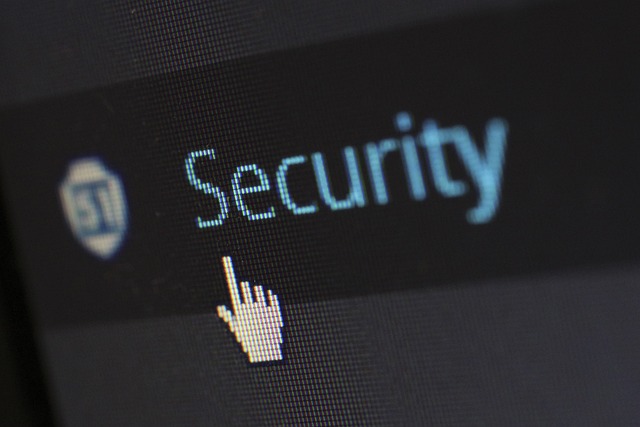Are you aware of the dangers lurking online? No matter if you browse for leisure, pay bills, or shop, there’s always a potential risk involved when using the internet. Without taking proper security measures, your personal data and information can easily be exposed and abused by malicious actors. Even if websites have already implemented their own cybersecurity systems, as a user there are still additional steps that need to be taken in order to ensure safe surfing of the web. In this blog post, we will explore why internet security is necessary and provide helpful tips on how to protect yourself from cyber attacks. If you’re looking for a specific solution to an evil twin cyber attack, check out the evil twin cyber security.
What is internet security and why it’s important
In today’s digital age, the internet has become an integral part of our lives. However, it also comes with its own set of risks. Internet security refers to the measures that are taken to protect our devices and personal information from cyber threats such as phishing, malware, and cyber attacks. It is crucial to ensure internet security because these threats can lead to significant financial and personal losses. For instance, cybercriminals can use your personal information for identity theft or install malicious software on your device to control it remotely. Therefore, it’s our responsibility to take internet security seriously and implement necessary measures to safeguard ourselves and our family members.
How hackers can take advantage of unprotected computers and networks
In today’s digital world, cybersecurity has become more important than ever. Hackers are always on the lookout for unprotected computers and networks to exploit. Once they gain access, they can wreak havoc by stealing sensitive information, manipulating data, or compromising entire systems. It’s not just large corporations that are at risk; small businesses and even individuals can also fall prey to these attacks. It’s crucial to understand the potential dangers and take steps to protect yourself and your data. By taking proactive measures such as using strong passwords, installing antivirus software, and keeping software up to date, you can reduce the risk of becoming a victim of cybercrime. Stay safe online!
Common practices to protect your computer from viruses and malware
When it comes to protecting your computer from viruses and malware, there are several common practices you can implement to help keep your device secure. First and foremost, ensure that you have reliable antivirus software installed and kept up to date. This will help detect and remove any malicious software that may infect your computer. Secondly, avoid suspicious emails, websites, and downloads that may contain harmful content. Always be cautious when browsing the internet and only download files from trusted sources. Additionally, regularly backing up your important files and data can also help in the event of an infection or system failure. By implementing these simple practices, you can help protect your computer from potential threats and keep your personal information safe.
Different types of available security software, such as antivirus, firewalls, and encryption
In today’s digital age, security software has become a necessity rather than a luxury. With a host of different types of security software available on the market, it can be quite overwhelming to determine which one will best suit your needs. Antivirus software is designed to prevent, detect, and remove malicious software from your device. Firewalls, on the other hand, help protect your device by blocking unauthorised access to your system. Encryption software is a powerful tool that will encrypt your data to prevent it from being accessed by unauthorised individuals. It’s crucial to understand the differences between these various types of software to choose the right one that will provide the security you need.
Tips on how to create strong passwords and account recovery methods
Creating strong passwords and implementing effective account recovery methods are essential in safeguarding your online security. The key to a strong password is to make it long and complex, using a mix of upper and lowercase letters, numbers, and symbols. Avoid using easily guessable information such as your name or birthdate. Additionally, consider using a password manager to generate and store strong passwords securely. Account recovery methods also play a crucial role in maintaining your online security. Ensure you have a valid and secure email address associated with your accounts and opt for multi-factor authentication whenever possible. By implementing these tips, you can significantly reduce the risk of your accounts being compromised and ensure your online safety.
What to do if you think your system may have been compromised
In the digital age, a compromised system can spell disaster for individuals and businesses alike. It is crucial to identify and address any potential security breaches as soon as possible. If you suspect that your system has been compromised, the first step is to isolate the affected device or network. Disconnect it from the internet and any other devices or networks immediately to prevent the spread of the breach. Next, run antivirus software to scan for malware or other malicious activity. Be sure to change any passwords that may have been compromised and closely monitor your accounts for any suspicious activity. It may also be wise to seek the assistance of a cybersecurity professional to fully assess and remediate the potential damage. Remember, being proactive in addressing a potential breach can ultimately save you time, money, and even your personal information.
Internet security is an ever-growing concern not only for businesses but also for individuals. With just one malicious code, hackers can wreak havoc on a system, resulting in lost data and confidential information being compromised. This ultimately leads to financial and reputational damage. The importance of understanding the threat of cyber attacks and the importance of having a robust security system in place cannot be understated. Utilising best practices such as strong passwords, reliable antiviruses, firewalls, and encryption will reduce the risk of falling prey to these malicious codes and keep confidential information safe. It is also important to know what steps to take if you think your system may have been compromised. By following the right steps, any potential damage can be minimised or avoided altogether. Taking precautionary measures now and staying vigilant can serve as protection against any future threats to your system’s security.

